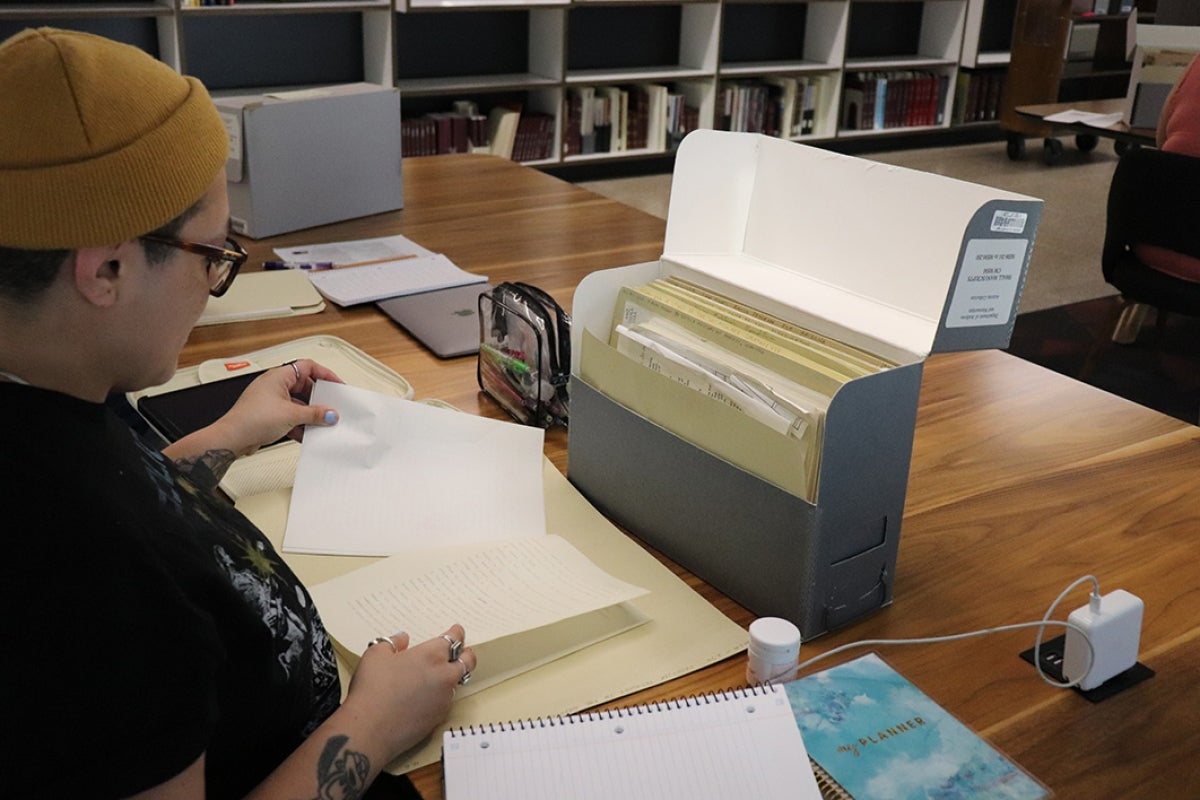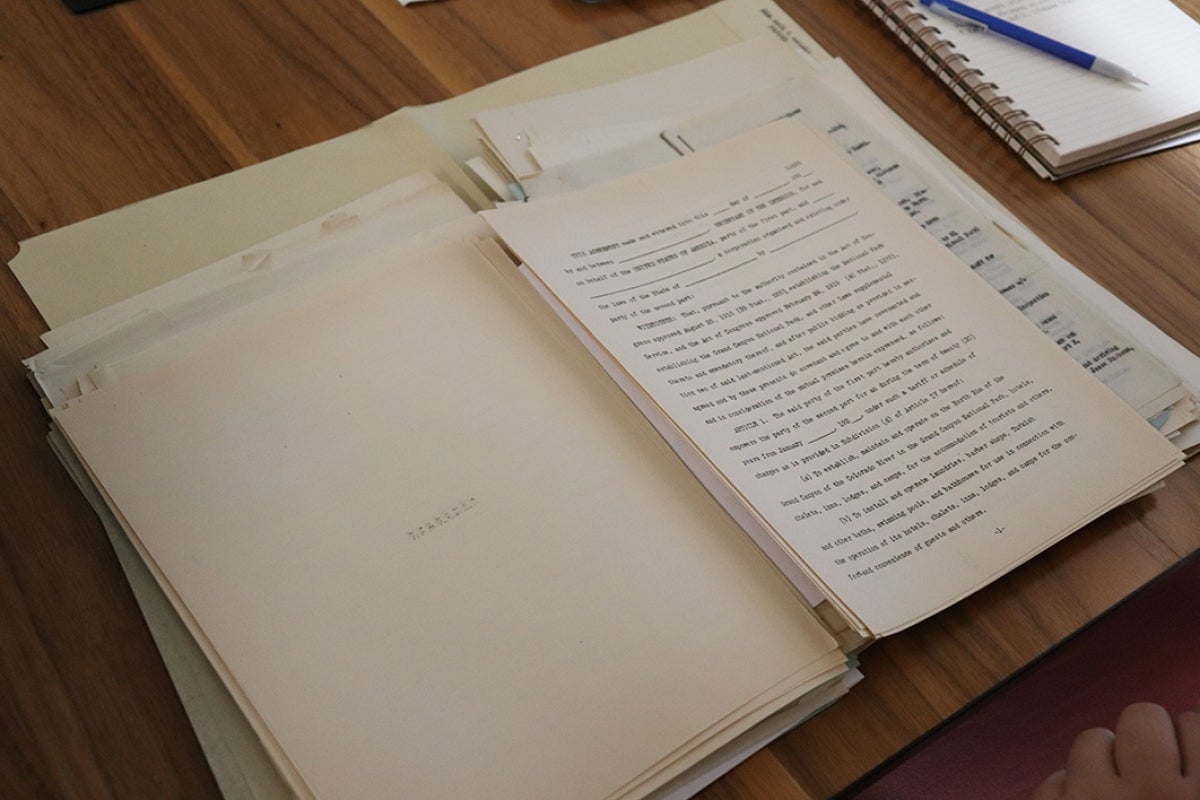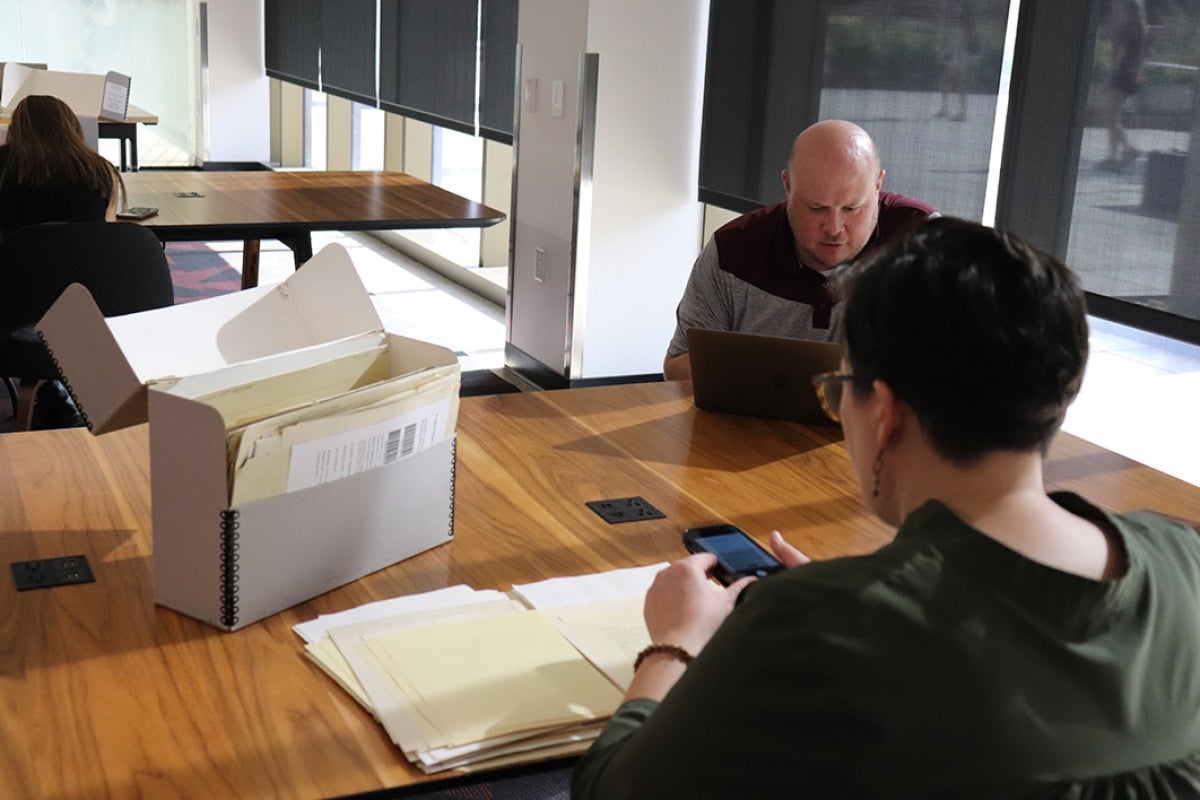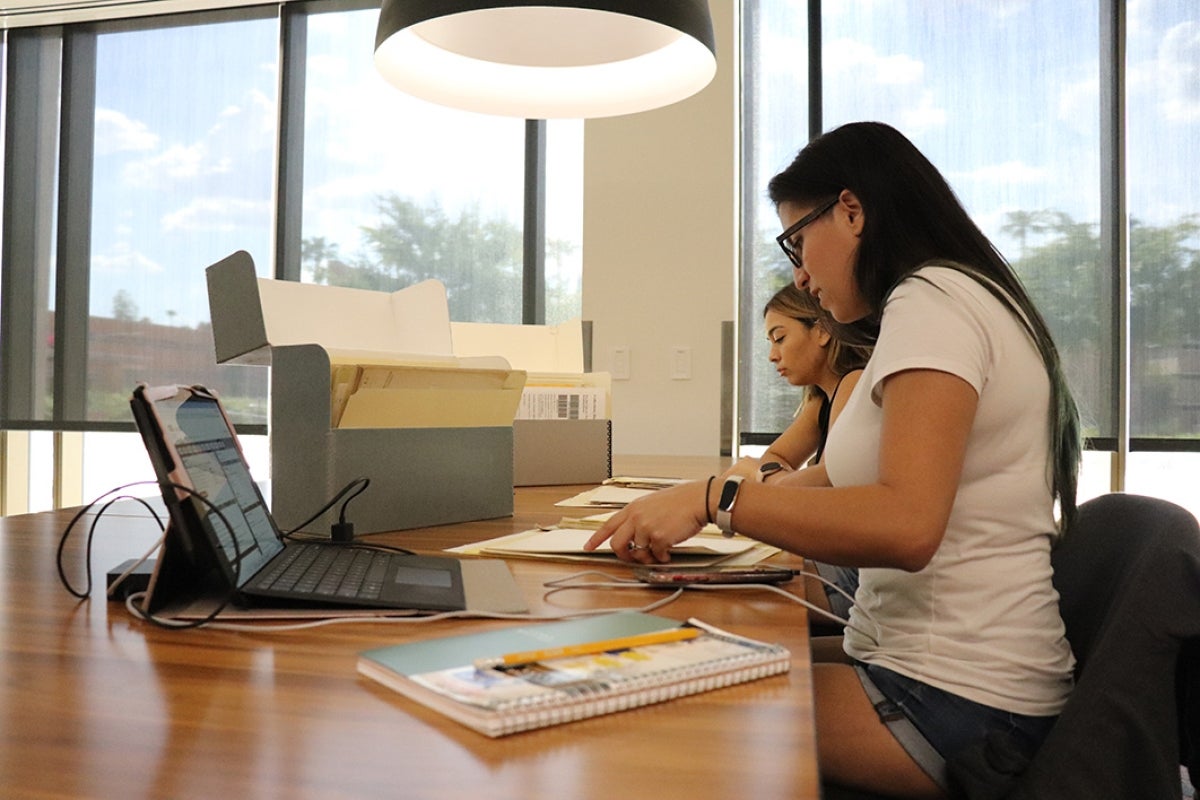History is happening today

Online history students visited the Tempe campus for an experience hosted by the OURS program, an undergraduate research opportunity that differentiates ASU from other institutions. Photo by Erica May
When The College of Liberal Arts and Sciences, with support from EdPlus, launched the Online Undergraduate Research Scholars (OURS) program in 2021, it began with a focus on the natural sciences.
However, Ara Austin, director of online engagement and strategic initiatives designed the pilot program to soon expand into the social sciences and humanities divisions.
This summer, the School of Historical, Philosophical and Religious Studies embraced that invitation to expand and hosted the first OURS program in the humanities.
“We invited online students to come to campus the first week of school,” said Peter Van Cleave, a clinical assistant professor of history and the director of online programs in the School of Historical, Philosophical and Religious Studies. “We're taking them into the archives, which is for historians, our lab. That is where we go for research. That is where we go for evidence.”
ASU Online history students from across the United States arrived at the Tempe campus for an in-person, one-of-a-kind research experience that complements a required class assignment for History 495, methods of historical inquiry.
The hybrid experience allowed students to spend a week of their research seminar inside the archives at the Arizona Historical Society and Hayden Library, where the faculty, archivists and historians taught them how to source information from what was left behind in diaries, photos, bills of sale, letters and more.
“All of these things we use to triangulate, to get at what life was like in these past historical moments,” said Matthew Casey-Pariseault, a clinical assistant professor and the associate director of program innovations and strategic initiatives at the School of Historical, Philosophical and Religious Studies.
“They get to look through the collections as they've been preserved from the historical record. They get to see them in their context and learn from the archivists and the collectors who've brought these collections to us. Then they can recreate that history by writing a research paper about it.”
The OURS program is a unique and valuable experience that sets ASU apart from all other online institutions in the country, Van Cleave says. While it may not be feasible for all online students to participate in an in-person or hybrid OURS program, due to a majority of the online students being working adults, having families or simply living outside of Arizona, it’s crucial that the opportunity is still presented.
class="glide image-carousel aligned-carousel slider-start glide--ltr glide--slider glide--swipeable"
id="glide-484310" data-remove-side-background="false"
data-image-auto-size="true" data-has-shadow="true" data-current-index="0">
data-testid="arrows-container">
“As much as things have been digitized, I think one of the things these students are taking away from this experience is there's so much history that is out there that has to be found in person, in the archives,” Van Cleave said.
Since the students have all done historical work before, this opportunity is more about having an experience, says Casey-Pariseult.
“Having that dusty smell, and seeing the notes that someone wrote in the margin ... Touching someone's physical belongings from 100, 200 years ago — that experience is something you can't recreate with a digitized primary source,” he said.
Preparing learners for future opportunities
Out of the six students who participated, a majority were from out of state and working adults with families. But all of them made sacrifices to be there. So why did they all say yes? Because they all wanted something more.
Whether it was a hands-on experience, the camaraderie of meeting classmates and professors face to face or the feeling of stepping onto campus as a Sun Devil.
Rachel Welshans, from Tucson, Arizona, had never conducted hands-on research before.
“I got the email laying out the opportunity, ‘Hey, we're doing this in-person study thing. Would you like to come out and do it?’ and I jumped at it right away,” she said. “It seemed like an opportunity that was too good to pass up, to actually be able to be in archives, meet archivists, do real historical research like historians are supposed to do.”
Classmate Laura Caster, from South Carolina, felt similarly.
“It was an easy decision for me. I really wanted an opportunity to be able to engage in this kind of research. My long-term goal is to eventually go to graduate school, and I would love to get a PhD, so I really need this kind of experience,” she said. “While being an online student is a great way for me to go to school, this aspect of scholarship definitely was missing for me. So this opportunity has kind of closed the gap.”
However, for history student Sally Velez, it was a split decision. Her family had just moved to Virginia two months prior, and her children were set to start new schools around the week of the OURS experience. She recalled talking with her husband and saying she wished she could do it, but their lives were so busy. He encouraged her to sign up anyway.
"We’re going to figure it out," he told her.
“It really fell together for me,” she said. “Not everyone with a family has the ability to do this. Some don't have family willing to fly cross country to come take care of kids. But if they do have that village, it doesn't hurt to ask.”
Alfe Ramirez just started at ASU as a history major. She said that at other institutions, “it kind of feels like online students are more of an afterthought and we're not really a part of the whole student body.” But at ASU, it’s different.
“It made me feel valued as an online student,” Ramirez said. “I felt really seen, and I'm really excited to be at ASU.”
Directors of the experience, Van Cleave and Casey-Pariseault, were with the students at every turn. They spent time together on the Valley Metro Rail, visiting the Heard Museum, eating meals together and, of course, in the archives.
“We always feel close to our students, even in an online space, but it's that extra interpersonal interaction this week that has made it really special so far,” Casey-Pariseault said.
Preserving history
Jennifer Merry, archivist and historian at The Arizona Historical Society, says she would welcome more visitors into the archive to research Arizona.
“It's such an understudied topic, and I love talking to students that are interested in history because students are just kind of wide-eyed and want to know more.”
Each student picked their own topic and worked with the archivists to locate primary source materials.
“The class itself is researching Arizona history. I am trying to specifically look into the history of botany and some of the plants in Arizona. I am really enjoying it. I've already learned so much,” said Alisha Downs from Kansas.
Helen Le, from Nevada, chose to study the Grand Canyon and how its development has impacted the state.
“It's really cool because you get to actually experience really old papers,” Le said. “It’s a different perspective of how old history really is. When you're looking at it, you're like, ‘Oh my God, this paper is so fragile. I don't want to break it.'"
History is fragile.
“We do have to be very careful with these materials. Some of this paper is a hundred or more years old; paper does become fragile,” Merry said.
“I think it teaches you to respect the material, and it also has taught us that not everything can be digitized for preservation purposes. So I think I have found a lot of benefit from it. I think my classmates have too,” Downs said.
While some believe that the future of archives is all digital, the Arizona Historical Society would disagree. Digital assets in some ways have less longevity than properly storing papers. Technology changes rapidly while paper, properly stored, can last more than a lifetime.
“To be able to have the opportunity to hold real history in my hand and to read letters, personal letters from back in the middle 1800s to the early 1900s, it just felt very profound. I feel extremely grateful to be a part of it,” Rameriez said.
More Arts, humanities and education

ASU alum's humanities background led to fulfilling job with the governor's office
As a student, Arizona State University alumna Sambo Dul was a triple major in Spanish, political science and economics. After…

ASU English professor directs new Native play 'Antíkoni'
Over the last three years, Madeline Sayet toured the United States to tell her story in the autobiographical solo-…

ASU student finds connection to his family's history in dance archives
First-year graduate student Garrett Keeto was visiting the Cross-Cultural Dance Resources Collections at Arizona State University…



